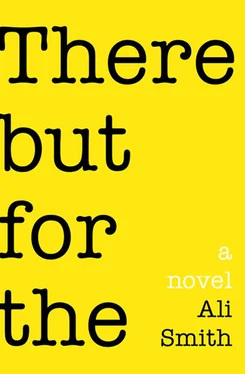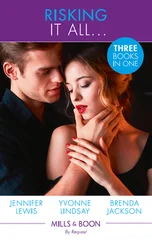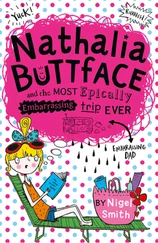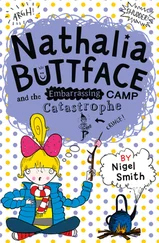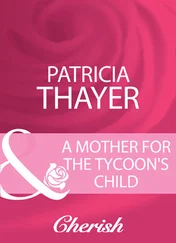The thought made me quite sad, Caroline says. But I mean, I looked at the pictures and, I have to say, I thought it. I mean, we don’t, do we? We don’t need real tigers any more. We’ve finally tamed the wild.
That’s what they want you to think, my darling moron, Hugo says.
Don’t call me a moron, darling, Caroline says.
Way the advert worked on you is the real point, Richard says.
Ah but no it isn’t, though, Caroline says. I can remember that it was an advert for trainers, but I can’t remember which make. So it didn’t work at all, actually, not the way they wanted it to.
Hannah asks the Bayoudes if they’ve ever seen a real tiger at home. Not in Yorkshire, they say. She asks where they’re from originally. They tell her they were living in Harrogate and working at the University of York, which is where they met. They work at the local university, they tell her. Bernice got a teaching post here in the arts faculty and Terence has latterly been accepted as a research fellow.
We had some luck, Bernice says. It’s not easy to get academic jobs in the same place. Terence had a salary in York, so you might say we’re missing that. But we’re okay. We’re together. We miss York. But we like it here a lot.
You’re the only ones in the whole borough, then, Jan says.
Personally I like it here very much, Eric says sitting down.
It is the first thing he’s said. Everybody turns and looks at him in surprise.
Miles passes his own water glass over to Mark’s side of the table. Hugo watches him do it, then reaches over for Miles’s name card. He holds it in his hands, at arm’s length, as if he needs glasses to read it. Then he puts it back where it was.
What is it you do again, Miles? Hugo says. I asked you before but we were interrupted by your vegetarianism.
Everybody laughs.
I’m an ethical consultant, Miles says.
Ah, Hugo says.
Mm, Richard says.
Ooh, Jan says.
What on earth’s an ethical consultant? Hannah says.
Miles smiles at her.
You’re the brave one, he says.
Am I? Hannah says.
She beams. Then she stops beaming when she sees the look Richard is giving her.
What it means is, I work for firms who want to ensure they’re ethically sound, or who would like to present themselves as more ethically sound, Miles says.
Ha, Hugo says.
Ho, Richard says.
I comb their profiles and make suggestions about where, depending on the brief, they could make themselves greener, or specifically help communities they’re local to, or capitalize on what’s already ethically sound about themselves. Or I highlight potential for all of these. Or, if it’s just presentation we’re talking, I suggest possible rebrandings.
Gosh, Caroline says.
He’s an ethic cleanser, the child says.
Everybody round the table bursts out laughing.
I don’t know why everyone’s laughing, the child says. I’m only repeating what he told me earlier.
Freelance, I take it, Miles? Hugo says.
What’s the per annum on that, roughly? Richard says. Pre-recession, let’s say.
That word, Jan says. Banned at this table.
This is delicious, by the way, Jan, Caroline says.
From the way people keep saying it, Mark gathers that the woman’s name maybe isn’t actually Jan, is maybe more like Jen. He tries to remember what Hugo called her when he insisted to Mark that he come tonight. He panics inside. Has he called her Jan out loud? He tries to remember if he’s said her name to her.
My bonds and shares, Terence is singing. May fall. Downstairs. Who cares? Who cares?
You like to sing, then, Terence? Hugo says.
Gershwin, the child says.
You said it, Terence says.
He and the child high-five. But at the word Gershwin Mark’s head fills with an unexpected music, a blast of Phil Spector production on He’s Sure The Boy I Love, so loud that it drowns the party out for a moment. When he can hear again, Jan or Jen is praising Hugo for something. She’s praising his singing voice.
That song at the end of the first half, Jen says, right before the interval, the one about the war being over in their dreams, do you remember? I’ll never forget it. It was really moving. Wasn’t it, Caro?
Hugo has apparently played Siegfried Sassoon in some kind of play, a play where he had to sing a song at the end of the first half. Mark takes a sip of water. It is new to him, the knowledge that Hugo can sing, the knowledge that Hugo acts in plays. He thinks of himself and Hugo in the bird-watching hut, Hugo behind him, deep inside him, saying, you are coming, aren’t you? Working on it, Mark said laughing, any second now. I mean weekend after next, Hugo said sounding offended even through the effort of love. You are coming to Jan and Eric’s?
Terence Bayoude, it seems, knows a great deal about musicals. Richard says it’s amazing the things people get taxpayers’ money to study these days. Terence tells Richard that his research fellowship is in metallurgy. Richard looks annoyed. Jen tells Terence again that Hugo’s got a great voice and that the Bayoudes should hear him on stage. Mark begins to wonder if Jen is maybe sleeping with Hugo too. He watches the shape of Jen’s mouth and the flick of her eyes for how these respond to Hugo all through Terence talking about how microphones and film changed the shape of the standard popular song early last century by making it easier to sing short notes yet still be heard at the back of the balcony. That actually made it possible, he says, for songwriters to use more syllables. But his real passion, he says, is dancers. Then Jen asks him about the anal imagery in Busby Berkeley, about which there was an article in last week’s Guardian.
Everybody laughs.
What’s anal, again? the child asks.
Caroline blushes.
Oh God. I’m so, so sorry, Jen says to Bernice. I didn’t think.
Terence tells the child that anal is the adjectival form of anus and that the anus is the opening at the end of the alimentary canal.
I knew that, the child says. But then what’s the problem with saying the word?
Then Terence tells everybody round the table that Busby Berkeley wasn’t a choreographer to start with, but came to it via the First World War, where he’d been a drill inspector.
I’m not musical at all, Richard says.
He hasn’t a musical bone in his body, Hannah says.
Brained by the musical bone of an ox, the child says. Ha ha. St. Arpeggio St. Alfeggio.
Her father laughs.
Where did you get a word like arpeggio from? her mother says. As if I didn’t know.
Is it stage musical or film musical you’re keen on, Terence, or both? Jen asks.
I just don’t get music, Richard says again.
Tell us some more facts like that one about Busby Berkeley, Terence, Eric says.
Everybody turns and stares at Eric.
Don’t encourage him, Bernice says. He’s anal enough about it already.
The whole table falls silent again.
Woah! Bernice says and hoots with laughter.
Well, Terence says. James Cagney and George Raft and John Wayne. The tough guys of Hollywood, well, they were all trained as dancers first.
That’ll be the day, Richard says.
Discipline, yes, Hugo says, it’s a very particular discipline.
And Fred Astaire, Terence says, had it written into his contracts that if he was being filmed dancing then his whole body was to be shown at all times, never just his feet or hands or head, never anything but the whole body.
Richard drops his knife. It hits the side of his plate quite hard.
Fascinating, Jen says nodding.
Hannah yawns out loud.
And Ruby Keeler, you know, the early tap dancer? Terence says.
No, Hannah says like a teenager, we don’t.
Keeler was the first really famous tap dancer, Terence says ignoring her. And when we see footage of her, dancing, these days, and we compare her to someone like Astaire, it’s easy to think she’s not very good, quite clumsy, because she’s so all over the place and clunky-looking. But in reality her dancing style came direct-descendant from the Lancashire Clog Dance. In fact it made Astaire’s possible. She was the first popularizer of the form.
Читать дальше
